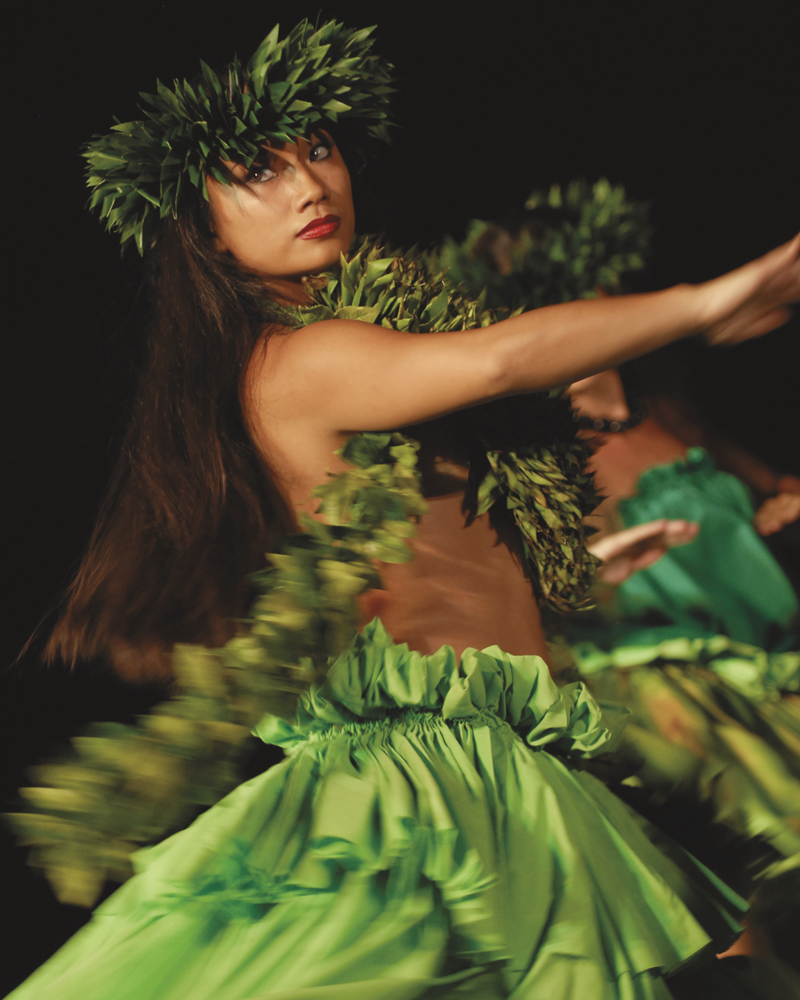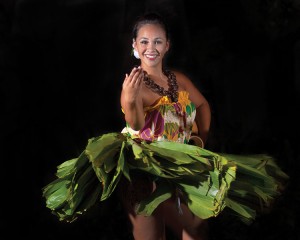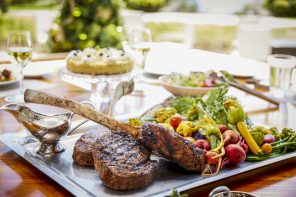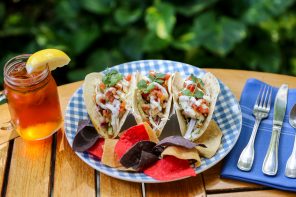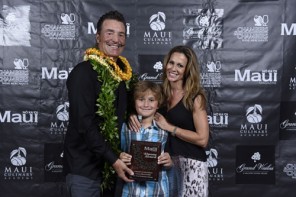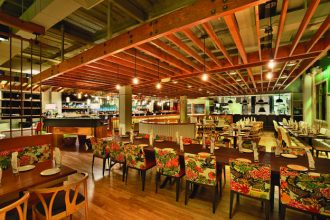A typical Hawaiian celebration is the lu¯‘au feast. For the outsider, it means a grand hula production with dinner. Did you know that the word lu‘au means to be filled full, but also refers to the tender green leaf of the taro plant. These leaves were used as cooking vessels. ‘Aha‘aina was the original Hawaiian word for feast, which literally means “a gathering of the land.” At one time, the people of Hawai‘i had to find an excuse not to hold a lu¯‘au. Just mentioning it would start everyone gathering the needs for a successful feast. From the mountain would come a pua‘a (pig) which was baked in the ground. From the ocean limu (seaweed) was gathered; it was believed to release someone from wrongdoing. And from the cultivated land would come kalo (taro) root pounded into poi and ti leaves to cover a table (or mat) to elicit protection. But the essential ingredient for a truly successful lu‘au is sharing Aloha. Visitors to these islands soon find that the feast accompanied by music and dance is one of the best ways to celebrate Hawai‘i.
The Feast at Lele – Lahaina was once called Lele. This particular area was reserved for Hawaiian royalty and their families. Their home was called Moku’ula and was located across what is now known as Front Street. During those times it was referred to as Ke Alanui Mo’i – The King’s Road. As you enjoy our incomparable beachside setting, we take you on musical and culinary journey through the Pacific Island nations of Hawai‘i, Tahiti, Tonga and Aotearoa. Each island nation’s culinary foods are served during their entertainment segment. This romantic seaside location will make your experience at The Feast at Lele a perfect lifetime memory.
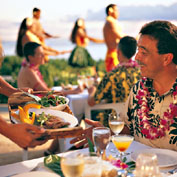
Wailele Polynesian Lu¯‘au – The Flavors and Fire of Maui come alive at The Westin Maui Resort & Spa’s signature oceanfront luau. Embark on an unforgettable journey through the South Pacific islands amidst lush tropical greenery and soothing sounds of waterfalls. With a stunning sunset backdrop, you’ll experience a Hawaiian feast as traditional dances and songs bring to life early traditions and cultures, culminating with Maui’s only fire knife finale with five dancers.

